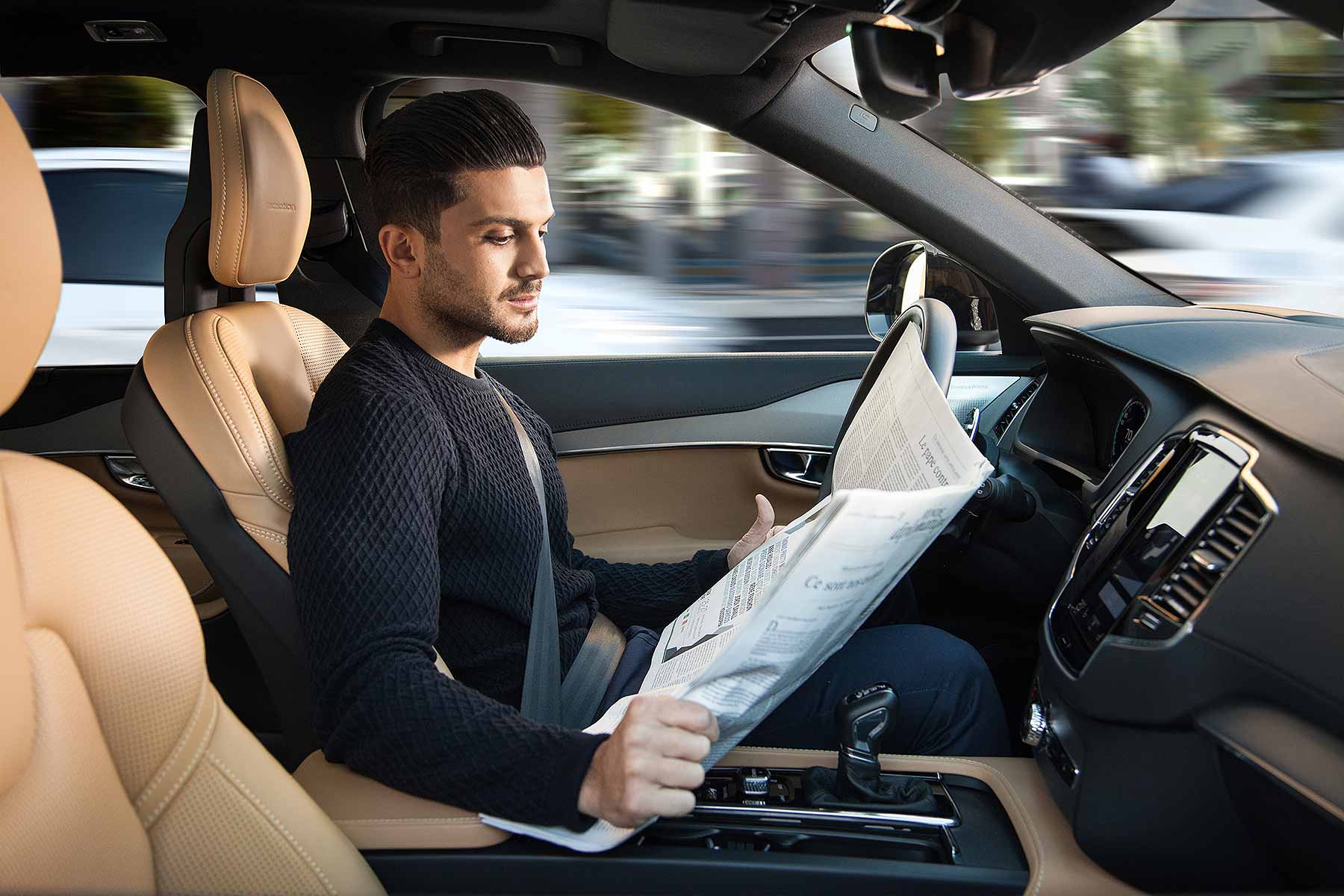 Thatcham Research has warned that car buyers are already becoming dangerously confused by new driver-assistance technology.
Thatcham Research has warned that car buyers are already becoming dangerously confused by new driver-assistance technology.
Its concerns follow the latest Euro NCAP crash-tests, which assessed ‘highway assist’ technology in 10 cars. These systems bundle up adaptive cruise control, lane centring and speed assist to aid the driver on motorways.
But Thatcham Research says over-hyped branding by car firms is leading motorists to misinterpret such tech as ‘autonomous’ – and alarmingly, 71 percent believe they can buy a car that drives itself today.
Matthew Avery, director of research at Thatcham, blamed car manufacturers for marketing the systems in such a way that drivers believe they can give up control.
When automated driving tech goes wrong
“Carmakers want to gain competitive edge by referring to ‘self-driving’ or ‘semi-autonomous’ capability in their marketing, but it is fuelling consumer confusion.
“This is exacerbated by some systems doing too much for the driver, who ends up disengaged.
“If used currently, highway assist systems will improve road safety and reduce fatalities, but they won’t if naming and marketing convinces drivers that the car can take care of itself.”
Euro NCAP’s findings are clear: no car on the market today offers full automation or autonomy. Highway assist systems offer driver assistance “but should not be confused with automated driving.
“Cars, even those with advanced driver assistance systems, need a vigilant, attentive driver behind the wheel at all times,” said Euro NCAP secretary general Michiel van Ratingen.
How carmakers are confusing car buyers
Thatcham Research highlighted some examples of marketing from car firms that it believes is confusing customers into believing the self-driving car is already here.
- Audi: “The new Audi A6 is developed to take a step towards autonomous driving thanks to the Audi AI garage pilot and the Audi AI parking pilot”
- BMW: “semi-autonomous driving due to Driving Assistant Plus”
- Citroen: “DS Connected Pilot is a step closer to autonomous driving, but still allows you to retake full control of the car at any point”
- Mercedes-Benz: “The C-Class is able to drive semi-autonomously in certain situations”
- Tesla: “All Tesla vehicles produced in our factory, including Model 3, have the hardware needed for full self-driving capability at a safety level substantially greater than that of a human driver”
- Volvo: “For smoother driving from standstill up to motorway speeds, Pilot Assist semi-autonomous drive supplements Adaptive Cruise Control buy adding gentle steering support to help keep the car centred in its lane and at a set speed”
Car makers: safety is ‘number one priority’
Mike Hawes from the Society of Motor Manufacturers and Traders (SMMT) has responded, insisting that “safety is the number one priority for car makers, which spend billions developing technology that mitigates driver error, reduces accidents and saves lives.
“Many new cars are now available with advanced assistance systems where the driver must remain in control at all times, including lane keeping assist, blind spot monitoring and emergency braking.
“Such systems are already making our roads safer and are expected to save 2,500 lives by 2030.
“We understand this survey found that 118 people in the UK believe they can buy ‘a car that drives itself’ today, but as most would accept, fully self-driving cars are still a long way off.”
Because full self-driving cars are so far off, the SMMT believes industry and regulators should now take the opportunity to clearly clarify exactly what makes a vehicle fully autonomous.
“This will ensure there is a common understanding and that all autonomous cars meet exacting international standards.”